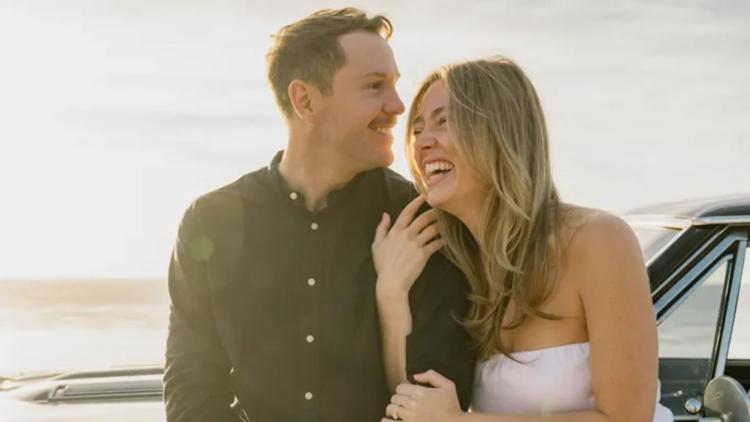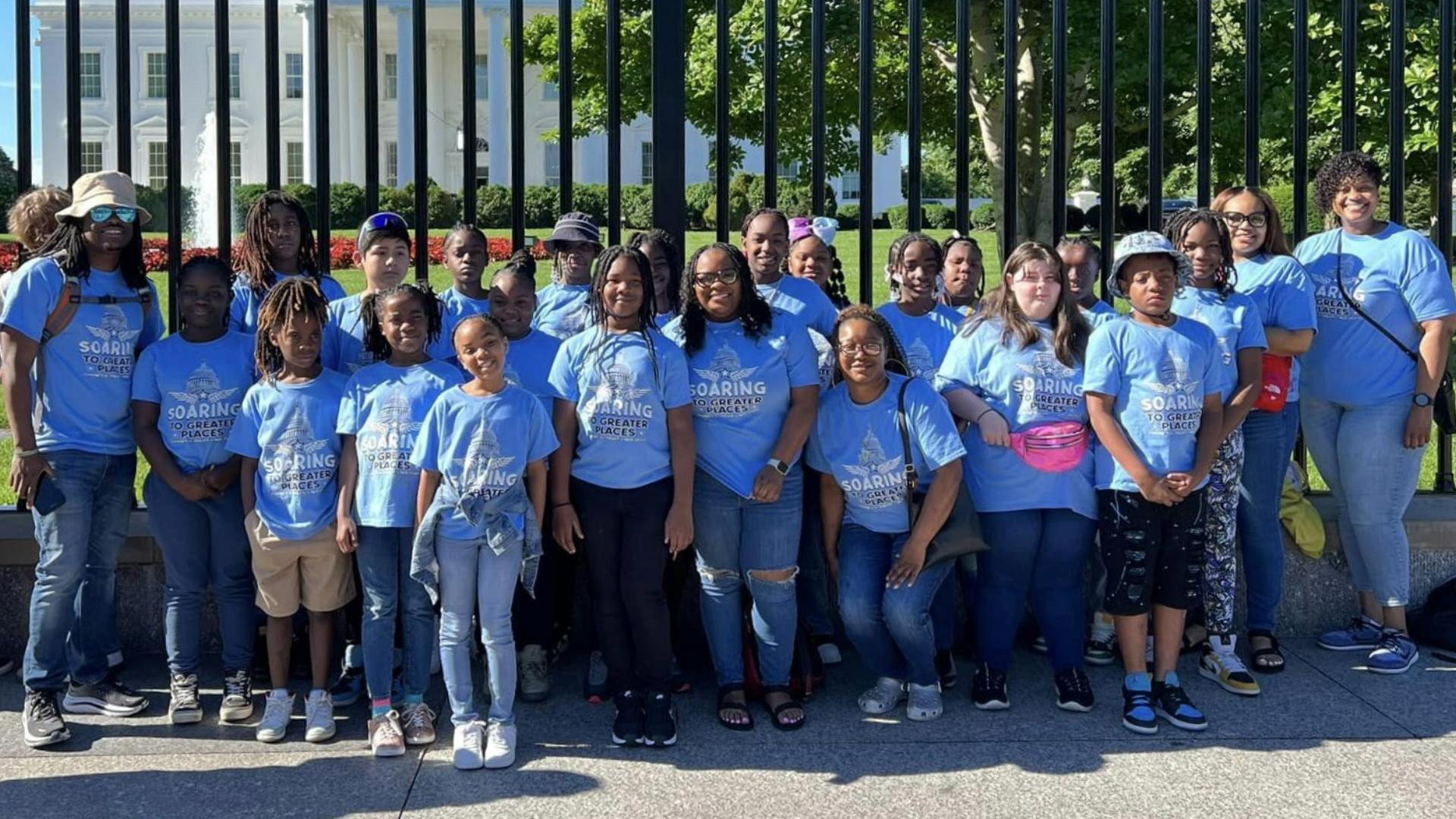ATLANTA — One of three men who were brutally killed on a surfing trip in Baja California and later dumped down inside of a 50-foot well was from metro Atlanta.
Family positively identified 30-year-old Carter Rhoad on Sunday as one of the victims who Mexican authorities said was killed after thieves allegedly tried to steal the trio's truck because they wanted the tires, according to reporting by the Associated Press.
The three men -- Australian brothers Jake and Callum Robinson and metro Atlanta native Rhoad -- were shot and killed. The suspects then allegedly got rid of the bodies by dumping them in a well near the coast that was "literally almost impossible to find," according to chief state prosecutor Andrea Ramirez.
The three men were on a camping and surfing trip along a stretch of coast south of the city of Ensenada, posting idyllic photos on social media of waves and isolated beaches, before they went missing two weekends ago when they didn't show up to their Airbnb where they were staying for the rest of their trip.
Family friends told 11Alive's Cody Alcorn that Rhoad was set to marry his fiancée in a private ceremony at the family's home along Lake Burton in the coming weeks before they were going to have a ceremony in Columbus, Ohio, for friends and extended family.


Rhoad and his family grew up in metro Atlanta. When he graduated, his parents moved up to Clarkesville, Georgia, to be up on Lake Burton. Clarkesville is about 84 miles northeast of Atlanta.
After growing up in the metro area, Rhoad attended Northview High School in Johns Creek. While there, he played on the soccer and football teams for the Titans. He won defensive player of the year for his soccer team in high school.
After graduating in 2009, Rhoad played two years of soccer at Florida Southern College before he later transferred to Point Loma Nazarene University, a Christian liberal arts college in San Diego, where he was a goalkeeper on the soccer team. After graduating in 2014, Rhoad played one year of professional soccer for Deportivo Mixco in Guatemala.
Rhoad decided to return to the San Diego area, where he got a job and continued to serve as a Young Life leader, a Christian organization that focuses on young people in middle school, high school and college. He also continued to serve as a team leader for Medical Mission Guatemala, an organization that takes summer mission trips to provide medical relief to remote villages in Guatemala, according to his LinkedIn.
Rhoad's mantra in life was all about helping others.
"I love people ... building genuine relationships is one of the most rewarding things in life, and I feel humbled every day by the people who surround me," Rhoad wrote on his LinkedIn page.


Two separate online fundraisers were created to remember his impact on the lives of those around him and to help a grieving family during an unimaginable time. One of the fundraisers was created by a friend of Rhoad and his fiancée Natalie in San Diego, who said the money is to help support his fiancée and also put the money toward scholarships and donations that he was passionate about. That online fundraiser has raised over $64,000 of its $250,000 goal and can be found here for those wanting to donate.
Another online fundraiser was created by a friend of Rhoad's parents. The money raised will go toward "essentials such as housing, food, transportation, and more," according to the fundraiser. The fundraiser has raised over $71,000 of its $100,000 goal and can be found here.
Read more about the case here
Three suspects are being held in connection with the case, which locals said was solved far more quickly than the disappearances of thousands of Mexicans.
Chief state prosecutor María Elena Andrade Ramírez described what likely would have been moments of terror that ended the trip for the Robinson brothers and Rhoad.
She theorized the killers drove by and saw the foreigners’ pickup truck and tents and wanted to steal their tires. But “when (the foreigners) came up and caught them, surely, they resisted.”
She said that’s when the killers would have shot the tourists.
The thieves then allegedly went to what she called “a site that is extremely hard to get to” and allegedly dumped the bodies into a well they apparently were familiar with. She said investigators were not ruling out the possibility the same suspects also dumped the first, earlier body in the well as part of previous crimes.
“They may have been looking for trucks in this area,” Andrade Ramírez said.
The thieves allegedly covered the well with boards. “It was literally almost impossible to find it,” Andrade Ramírez said, and it took two hours to winch the bodies out of the well.


Australian Treasurer Jim Chalmers expressed sympathy for the Robinson family. “I think the whole country’s heart goes out to all of their loved ones. It has been an absolutely horrendous, absolutely horrific ordeal and our thoughts are with all of them today,” he said at a news conference Monday in the capital, Canberra.
The site where the bodies were discovered near the township of Santo Tomás was near the remote seaside area where the missing men’s tents and truck were found Thursday along the coast. From their last photo posts, the trip looked perfect. But even experienced local expatriates are questioning whether it is safe to camp along the largely deserted coast anymore.
The moderator of the local Talk Baja internet forum, who has lived in the area for almost two decades, wrote in an editorial Saturday that “the reality is, the dangers of traveling to and camping in remote areas are outweighing the benefits anymore.”
But in a way, adventure was key to the victims’ lifestyle.
Callum Robinson’s Instagram account contained the following slogan: “If you’re not living on the edge, you’re taking up too much room.”
At the news conference, Andrade Ramírez was questioned by one reporter who expressed approval that such a massive and rapid search was mounted for the foreigners, but asked why, when local people disappear in the area, little is often done for weeks, months, or years.
“Do you have to be a foreigner in Baja California in order for there to be an investigation if something happens to you?′ asked the reporter, who did not identify herself by name. ”Every investigation is different,” Andrade Ramírez replied.
As if to underscore that point, dozens of mourners, surfers and demonstrators gathered in a main plaza in Ensenada, the nearest city, to voice their anger and sadness at the deaths.
“Ensenada is a mass grave,” read one placard carried by protesters. “Australia, we are with you,” one man scrawled on one of the half-dozen surf boards at the demonstration.
A woman held up a sign that read “They only wanted to surf — we demand safe beaches.”
Gabriela Acosta, a surfer, attended the protest “to show love, solidarity and respect for the three lives that were lost.” Acosta said that surfers in Baja are aware of the dangers.
“We are women and we would sometimes like to surf alone,” Acosta said. “But we never do that, because of the situation. We always have to go accompanied.”
“I think that what happened to them is just an example of the lack of safety in this state,” she said.
Surfers later performed a “paddle-out” ceremony where they formed a circle on their boards in the ocean.


Baja California prosecutors had said they were questioning three people in the killings, two of them because they were caught with methamphetamines. Prosecutors said the two were being held pending drug charges but continue to be suspects in the killings.
A third man was arrested on charges of a crime equivalent to kidnapping, but that was before the bodies were found. It was unclear if he might face more charges.
The third suspect was believed to have directly participated in the killings. In keeping with Mexican law, prosecutors identified him by his first name, Jesús Gerardo, alias “el Kekas,” a slang word that means “quesadillas,” or cheese tortillas. Andrade Ramírez said he had a criminal record, and that more people may have been involved.
Last week, the mother of the missing Australians, Debra Robinson, posted on a local community Facebook page, appealing for help in finding her sons. Robinson said Callum and Jake had not been heard from since April 27. They had booked accommodation in the city of Rosarito, not far from Ensenada.
Robinson said Callum was diabetic. She also mentioned that the American who was with them was named Jack Carter Rhoad, but the U.S. Embassy in Mexico City did not immediately confirm that. The U.S. State Department said it was aware of reports of a U.S. citizen missing in Baja, but gave no further details.
In 2015, two Australian surfers, Adam Coleman and Dean Lucas, were killed in western Sinaloa state, across the Gulf of California — also known as the Sea of Cortez — from the Baja peninsula. Authorities said they were victims of highway bandits. Three suspects were arrested in that case.


